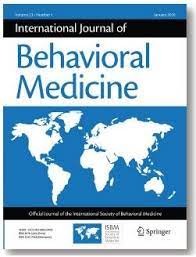Mobile Heart Rate Variability Biofeedback as a Complementary Intervention After Myocardial Infarction: a Randomized Controlled Study
Categories
Keywords
Categories
Keywords
- Show all
- ADHD
- Anxiety/Panic
- Burnout
- Cancer
- Cardiovascular disease
- Chronic pain
- Cognitive function
- Cortisol/DHEA
- Costs
- Dementia
- Depressie
- Diabetes
- Global Coherence
- Hypertension
- Intuition & Consiousness
- Kids/Youth
- Leadership
- Meditation/Mindfulness
- Metabolic Syndrome
- Obesity/Eating disorder
- Pregnancy
- PTSD
- Resilience
- Schizophrenia
- Science HRV & Coherence
- Sleep quality & fatigue
- Social Coherence
- Stress
Mobile Heart Rate Variability Biofeedback as a Complementary Intervention After Myocardial Infarction: a Randomized Controlled Study

Background
To enhance effective prevention programs after myocardial infarction (MI), the study examined the effects and feasibility of mobile biofeedback training on heart rate variability (HRV-BF).
Methods
Forty-six outpatients aged 41 to 79 years with a documented MI were randomized to HRV-BF versus usual care. Generalized estimating equation (GEE) analyses were performed to test improvements in measures of short- and long-time HRV, namely, the standard deviation of the normal-to-normal intervals (SDNN) and well-being after 12 weeks of HRV-BF.
Results
There were intervention effects for short-time HRV (d > 0.4, p < 0.04), which were partly replicated in the GEE models that accounted for control variables: In the HRV-BF group, the high-frequency HRV (group × time interaction: β = 0.59, p = 0.04) compensated for significantly lower baseline levels than the group with usual care. In an optimal dose sample (on average two HRV-BF sessions a day), SDNN significantly increased after HRV-BF (p = 0.002) but not in the waitlist control group. Compensatory trends of HRV-BF were also found for high-frequency HRV and self-efficacy. No adverse effects of the intervention were found but neither were effects on long-time HRV measures.
Conclusion
The results showed the feasibility of self-guided HRV-BF for almost all post-MI patients. HRV-BF as an adjunctive behavioral treatment increased HRV, which is an indicator of lower cardiovascular risk, and self-efficacy, which suggests heightened psychological resilience. These benefits warrant confirmation and tests of sustainability in larger studies. Trial Registration The trial has not been registered due to its starting point in 2017 predating the publication of the applicable CONSORT extension for reporting social and psychological intervention trials in 2018.
Download the complete article, click here